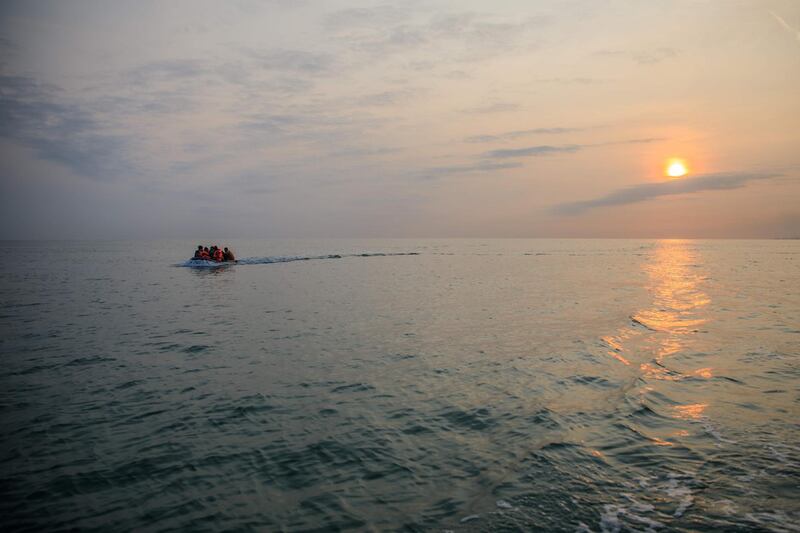Britain is preparing to use nets to disable inflatable dinghies carrying migrants across the English Channel, the new Clandestine Channel Threat Commander said.
Dan O'Mahoney, a former Royal Marine, said British border force ships will make small boats unusable and return migrants to France
The British government is also using social media campaigns and officials stationed abroad to tell potential migrants in Africa and the Middle East that they should claim asylum in the first safe country in which they arrive.
He said migrants who travelled through Europe to get to Britain faced “an incredibly dangerous journey” to get to the UK, usually using small boats or in potentially deadly vehicle transporters.
A court case heard this week the harrowing accounts of the last moments faced by 39 Vietnamese migrants who suffocated to death when trapped in a lorry as it crossed to Britain in October last year.
The ratio of migrants using small boats for the crossing has dramatically risen, from 30 per cent to 70 per cent in the past year, caused primarily by Covid-19 affecting other forms of transport. Clandestine arrivals are currently more than 300 per day, the highest number on record.
Mr O’Mahoney, who was appointed to the new role by the Home Secretary in August, has put forward a four-stage plan to tackle the problem of illegal migration across the narrow stretch of water between Britain and France.
The first stage is using outposts of government agencies as part of an influencing and information programme to dissuade migrants from attempting the crossing. Next Britain will try to stop migrants leaving northern France by helping the authorities there dismantle illegal camps
The third part of the strategy will be to physically prevent migrants entering Britain and using stronger tactics to do so.
Describing progress on the third stage of the plan, Mr O'Mahoney, who was previously director of the Joint Maritime Security Centre, said: "We are exploring tactics to make safe interventions, in order to return migrants back to France.
"We definitely are very, very close to being able to operationalise a safe return tactic where we make an intervention safely on a migrant vessel," he told The Telegraph.
He was then asked if this would include a tactic used by Royal Navy ships in which nets are used to wrap around a boat’s propellers, stopping it in the water. “It's that type of thing, yes,” Mr O’Mahoney said. “Safely disabling the engine and then taking the migrants on board our vessel.”
He said the method would be used in the coming months. “We are working with maritime security departments across law enforcement and military, everywhere across government and come up with new tactics to tackle this problem.”
The fourth stage will be new laws.
Mr O'Mahoney's comments came as Home Secretary Priti Patel announced tough new laws against asylum seekers and controversy over proposals to use islands such as St Helena in the South Atlantic or disused ferries as holding centres for illegal immigrants.








